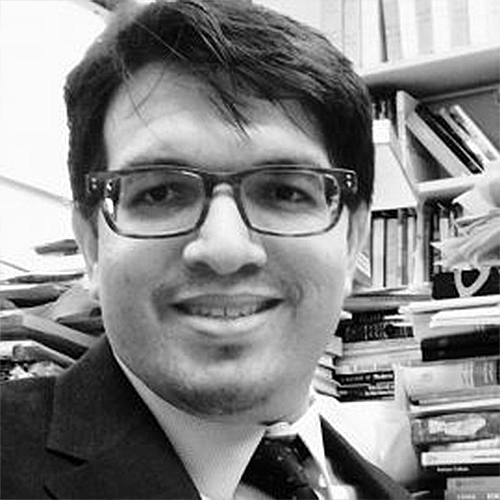Affiliation:
Location:
Field of Interest:
Mostafa Abedinifard
I am currently involved in three projects, each in a different stage. My main project is a research monograph, tentatively titled Satiric Modernity: Humor, Affect, and Nationalism in Iran. In part a history of emotions in modern Iran, this project explores the intersections of humor—and a range of related emotions, including embarrassment, shame, and humiliation—with gender, sexuality, race, and ethnicity in modern Iranian history, literature, and culture. Arguing for the occurrence of an epistemic shift in classical Persian literature during the mid-19th century, the volume will combine archival research into 19th- and early 20th-century Persian periodicals with fresh critical analyses of elite and folk literature on one hand and extant historiographical accounts of Iranian modernity with theories of humor on the other, to render a novel understanding of the genesis, development, and sociopolitical functions of some prominent forms of modern Persian humor in Iran. While previous studies of this humor insinuate and often celebrate its liberal and subversive aspects, this book will demonstrate how Iranian modernity was informed by, and helped form, humor modes and types that posit and systematically underscore the othering of gendered, sexual, ethnic, and racialized beings. My second project, gradually developing, is another research monograph, tentatively titled Men, Boys, and Manhood in Modern Iranian Literature, Culture, and Film. This project examines the representations, constructions, and contestations of hegemonic and marginalized forms of masculinity in modern Persian fiction, popular culture, and Iranian film productions since the late Qajar dynasty. In this monograph, I am especially interested in revealing the costs of patriarchy for men and boys, foregrounding the ways they can help bring about gender equality. I argue that despite differing state policies, certain long-standing and hegemonic patterns of masculinity have persisted in Iranian culture and society, which tend to create impediments to meaningful progress towards gender democracy. As a remedy, and through close readings of pertinent fictional and autobiographical narratives, I show how certain underrepresented forms of masculinity can offer models and possibilities for redress. I have keenly attempted to introduce critical studies of men and masculinities into Iranian gender studies over the past years. Recently, I co-edited a special issue of Iran Namag on the same topic. Alongside other scholars, many of the contributors to the special issue will be presenting their research in a four-panel seminar I have convened on the same theme at the forthcoming Association for Iranian Studies conference (University of California, Irvine, 14-17 Aug. 2018). A pertinent project, tentatively titled Iranian Men and Masculinities: Interdisciplinary Perspectives, will be an edited volume based on the special issue and the seminar contributions. The contributors represent a diverse group of specialists in Iranian studies. Therefore, their essays will showcase a variety of topics and texts and are written from various interdisciplinary approaches, including gender and sexuality studies, literary studies, cultural studies, visual and film studies, cultural sociology, and Islamic studies. The third project I am presently working on is a volume of essays, titled Persianate Literature as World Literature, which I am co-editing with Amirhossein Vafa of Shiraz University, Iran. Confronting nationalistic frameworks in Persian literary studies, this project strongly promotes research that foregrounds the interdependencies, interrelations, connections, and flows expanding Persian literature beyond its mere locality and showcases its possible connections to and influence on other local and translocal narratives. The essays will regard Persian literary texts and authors in their “worldly” dimensions, situating them within—and, ideally, contributing to—ongoing critical debates on world literature. Some of the themes and topics the authors will explore in this volume include the connections between Persianate literary productions and those of the rest of the world; comparative studies of Persianate literature within a world literary framework; and a rereading of Persianate literature with respect to globalization, transnationalism, and world citizenry.

